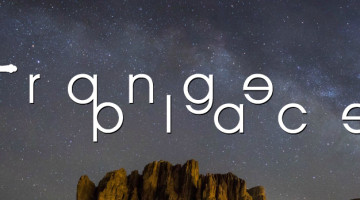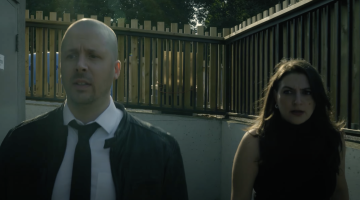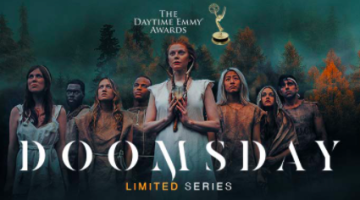Sleep, study, spend time with friends…People say that in college, you only have time for two of these things.
However, if you’re a student filmmaker, you probably cut out sleep long ago, and if you’re studying and spending time with friends, that means you’re on set.
So to help you make the most of 4 years spent on those 2 things, and (maybe, maybe not) have time left over to catch up on sleep, here are 7 tips for student filmmakers.
#1: Get class credit for your work
If you’re a film major, you’ll have plenty of projects for class, but what if you want to create something outside of class, like a longer short or a web series? Or what if you have a different major, but you’re still really interested in film and digital media? Get your project approved as an independent study. You’ll already be spending a ton of time on the project, so if your mom calls and asks why you were up until 2 am shooting a musical dance number, just tell her: “It’s homework, mom. IT’S FOR CLASS.” Plus, if you register the class with your university’s film department, you will often have access to check out film equipment and reserve certain classrooms and rehearsal spaces. It’s the best of both worlds—you can design your own project and course of study, and still utilize the great resources your university has to offer.
#2: Check out your college TV Station
I got my start with VTV, Vanderbilt’s television station, and recently produced A Midsemester Night’s Dream with the station. Working with your college communications clubs can be helpful because they often provide equipment, training, mentors, and a network of people dedicated to helping student filmmakers succeed. This is also a great way to get involved if you want to be part of film and TV, but not necessarily create your own work–often other students seek volunteers, from actors to PAs, and you can sign up for these interesting projects through the communications clubs on campus.
#3: Collaborate
You know who met in college? Wes Anderson and Owen Wilson. Beck Bennett and Kyle Mooney. And potentially you and your next film partners.
In college, you’re surrounded by a talented, driven peer group, and it’s a great time to find people who work well with you. Start building a team, and who knows—you might be working together for years to come.
And the collaboration doesn’t have to end there. You can work with other clubs and groups on campus to showcase one another’s talent. For example, I did a fundraiser for my last web series with the improv group on campus, Tongue ‘N’ Cheek.
We performed a half scripted, half improvised show to apply both our talents. This can also be great mutual publicity—the more people who are in your projects, the more people will watch your material, and collaboration is a great way to increase your audience.
#4: Seek Advice from Professors & Professionals
A huge trend right now is to adapt works of literature into web series, and who better to help with this than English professors? Or, if you’re producing a sci fi short, you could speak with a science professor to get your facts straight. Etc., etc. College is a great time to seek the advice of professors, and even professionals in the industry. Since you’re a student, people are often very willing to speak with you and share their story, and their tips can be invaluable as you prepare to enter the work force. Informational interviews are also a great way to learn more about the industry. For help starting with this, check out your school’s Career Center—in my experience, the employees at these centers are extremely helpful with everything from general advice to resume tips to pointing you in the right direction for post-grad questions.
#5: Look for Internships
Ah, the elusive internship. You have to have experience to get experience, right? But as a student, if you’ve been spending a ton of time working on film projects, you’ve got a leg up. Many places actually only offer internships to full-time students, so college is the prime time to see where you fit in the industry. Spring or fall internships can be a great way to start out, because they are usually part time for class credit and won’t have as large of an application pool as summer internships.
#6: Use Social Media
This is a given when advertising your projects and connecting with people in the industry, but it’s especially important in college when everyone’s on their computers 24/7. Consider using transmedia to make your story an even more immersive experience, and find out campus trends and include them on your accounts. You can even go beyond social media by using things in the non-virtual world (whaaat) to advertise your project. For example, for A Midsemester Night’s Dream, my cast and crew ordered stickers with our logo to put on our laptops and folders and binders and all surfaces we could use for marketing.
#7: Mess Up. A Lot.
You’re in school, and you’re there to learn. Which means it’s totally fine to make mistakes. After all, whether it’s amazing or not, it’s a “student film.” You’re supposed to experiment and create something that might not be flawless, because that’s how you learn. The first web series I ever made was a musical web series about zombie alien frat stars. Side note—I’m terrified of zombies. Anyway, we had more continuity errors than I could count, I literally rewrote episodes on the spot, and at one point there was a power outage in the middle of the shoot. So many things went wrong, and I learned so much from it. Plus, I met some of the most awesome, talented people working on that set, and I still work with a lot of them to this day.
Right now, I’m producing a short film called The Delivery Girl with a team I’ve found throughout the years, and the process has been professional and fun and really exciting. And it got that way because we weren’t afraid to make mistakes as we went along—we just went for it. Even the projects we make now aren’t flawless—check out the sprinkler incident on our most recent blooper reel for Midsemester—but it’s a learning process, and this is the time to go for it and just make something. You have to make a rough draft before you make a masterpiece.













No Comment